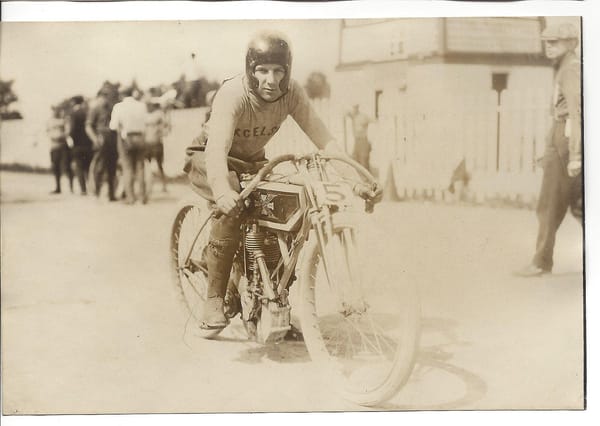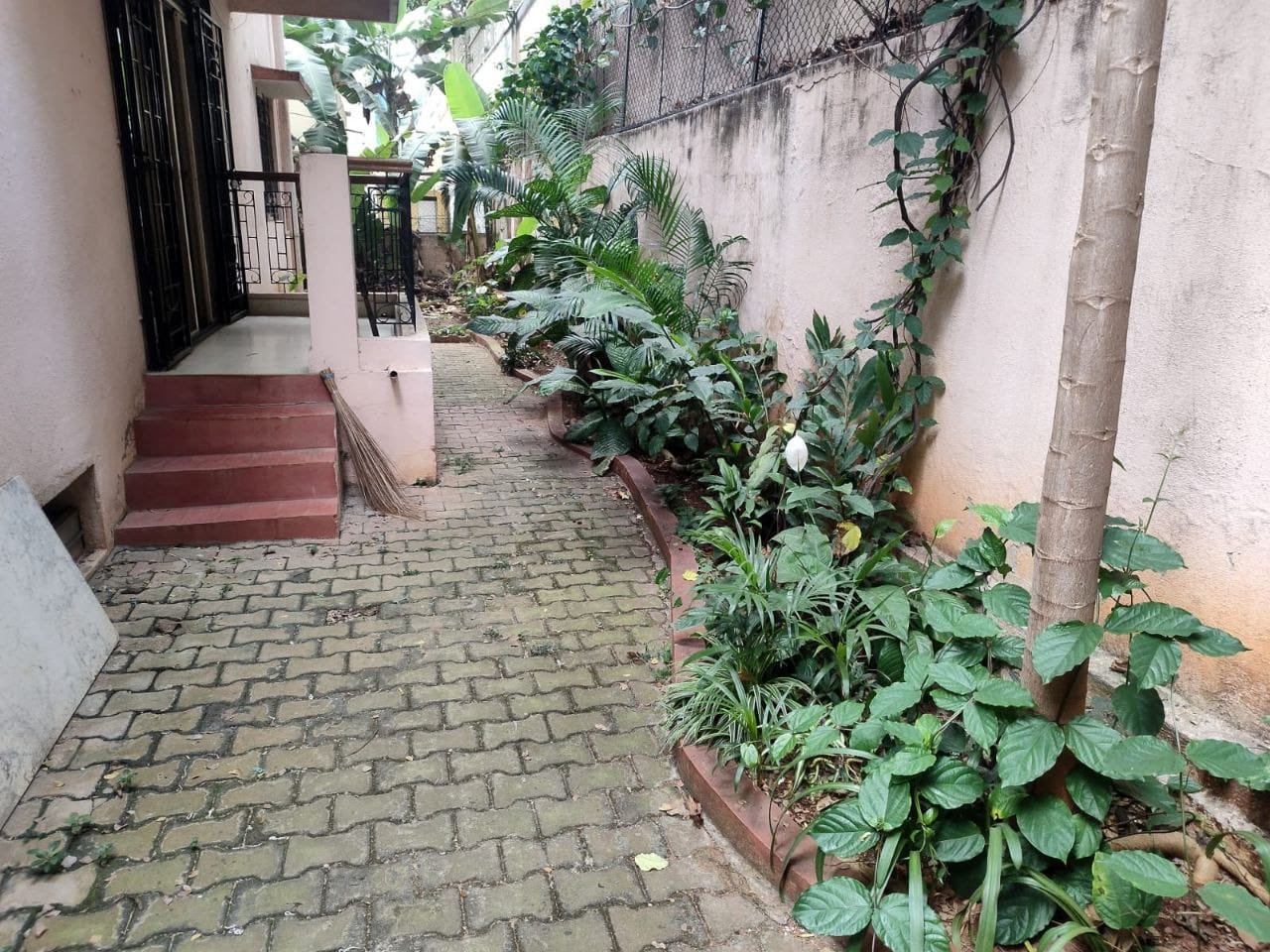Quality, and the cutlets of enthusiasm

Zen and the art of motorcycle maintenance was on my reading wishlist for a while. From the title, I assumed the book would be something like a tasteful self-help book, a quirky blend of kōanic mysticism applied to motorcycle maintenance, with a nudge and a wink for the reader, who is expected to understand this to be a metaphor that explains How To Live, and not really motorcycle maintenance.
Boy, was I wrong.
As I write this, it is my last day at my current flat, which has been featured around here before. I have to vacate this place because the owner has sold it, and it shall be demolished and remade into a bungalow, shinier, and newer.

The new house I'm going to is also "nicer" and contemporary. The market agrees, through an increase in the rent I'm paying (that I can gratefully afford). It's in a location that is considered "prime". The fittings are nicer. The place is planned well.
It doesn't feel like an upgrade.
There's a wholeness, a quality to an untouched forest that isn't there in a well-manicured, but equally green holiday retreat. That's the difference I'm feeling with this move.
To be clear, I hated school.
But there were teachers in school who had some good ol' gumption. Pirsig in Zen captures it well,
I like the word "gumption" because it's so homely and so forlorn and so out of style it looks as if it needs a friend and isn't likely to reject anyone who comes along. It's an old Scottish word, once used a lot by pioneers, but which, like "kin," seems to have all but dropped out of use. I like it also because it describes exactly what happens to someone who connects with Quality. He gets filled with gumption.
The Greeks called it enthousiasmos, the root of "enthusiasm." which means literally "filled with theos," or God, or Quality.
The gumption-filling process occurs when one is quiet long enough to see and hear and feel the real universe, not just one’s own stale opinions about it. But it’s nothing exotic. That’s why I like the word.
In some ways college was worse. Everyone had a cynical way of navigating reality. I'd have thought my cohort would relieve themselves of modernity's rat races, but they instead explicitly sought them out.
Turns out, most of us had forgotten How To Live without a rat race.
Once I was out of college reality to real reality, it only got more pronounced. I aim to meet work, life and otherwise with enthusiasm—there's no point otherwise. In Bangalore, high agency people having a good time are called enthu cutlets. I'm not too enthu about this characterisation, for it implies enthu is a status, and not something that is verbed. We are all chefs capable of serving cutlets filled with theos.
The cutlets of enthusiasm I serve get a mixed reception. A mixed reception in this axis is poor reception to my sensibilities.
Cutlets of enthusiasm aren't in the zeitgeist. In my perception, people weren't enjoying them for a while now, but with the turn of the second decade of the twenty-first century, it almost seemed to be actively abhorrent as a plat du jour.
Perhaps a pandemic that reportedly killed 7 million (and unreportedly killed 18.2 to 33.5 million) had something to do with it.
To not serve such a cutlet is seen as sober and mature. "May all Sober and Mature people not serve cutlets of enthusiasm" is a prayer asking for all the immature and capricious knaves to rule your world.
It's not that the cutlets of enthusiasm have disappeared. It's worse than that, actually. Enthusiasm is yet another bit to perform. It's one of many acts available to you. Enthusiasm as a means to an end is fake, sham, fraud, phoney. No wonder people abhor it more. The oil has gone rancid.
PSSSSssssss.
That's not the sound of the cutlet sizzling. That's the sound of the psychic gasoline called gumption escaping our collective consciousness.
Sober and mature are qualifiers that are usually never applied to or meant for children. Naïve is an uncontroversial adjective to slap on to them.
For all practical purposes, modern society considers naïve to be a synonym for idiot.
Therefore, we consider children to be idiots.
Even if that were the case, I'd prefer idiots to grown-ups.
Zen wasn't kōanic mysticism applied to motorcycle maintenance, with a nudge and a wink for the reader, who is expected to understand this as a metaphor to learn How To Live.
It's a restless work produced by a brain of reflective, opulent and luminous design. It quite ambitiously mixes memoir, fiction and explanations of epistemology, metaphysics and a history of philosophy, among other things. The narrator is unreliable and pursuing a ghost.
Pirsig's brain was also deemed schizophrenic and he underwent multiple rounds of electroshock therapy.
An undercurrent throughout the book is a lamentation of some loss that occurred over the course of the twentieth century. I'm lamenting the losses continuing into the twenty-first century.
"What's new?" is an interesting and broadening eternal question, but one which, if pursued exclusively, results only in an endless parade of trivia and fashion, the silt of tomorrow. I would like, instead, to be concerned with the question "What is best?," a question which cuts deeply rather than broadly, a question whose answers tend to move the silt downstream. There are eras of human history in which the channels of thought have been too deeply cut and no change was possible, and nothing new ever happened, and "best" was a matter of dogma, but that is not the situation now. Now the stream of our common consciousness seems to be obliterating its own banks, losing its central direction and purpose, flooding the lowlands, disconnecting and isolating the highlands and to no particular purpose other than the wasteful fulfillment of its own internal momentum. Some channel deepening seems called for.
How To Live?
The strategy for How To Live is to live wholly and deeply with a big, big heart. Make it as large and open as possible. I almost don’t like this because of how schmaltzy this sounds. By "heart" here, I mean the soft glow of quality that encompasses everything.
I can explain what living with a big heart means.
It’s to fall in love with people, cats, lizards, things and places. It’s to be genuinely curious about everything, be honest with everyone (starting with yourself) and welcome the world wholly. I have occasionally felt an aversion to live with such earnestness. But when I do meet the world with that kind of conviction it has been extremely rewarding. One can always make their heart bigger.